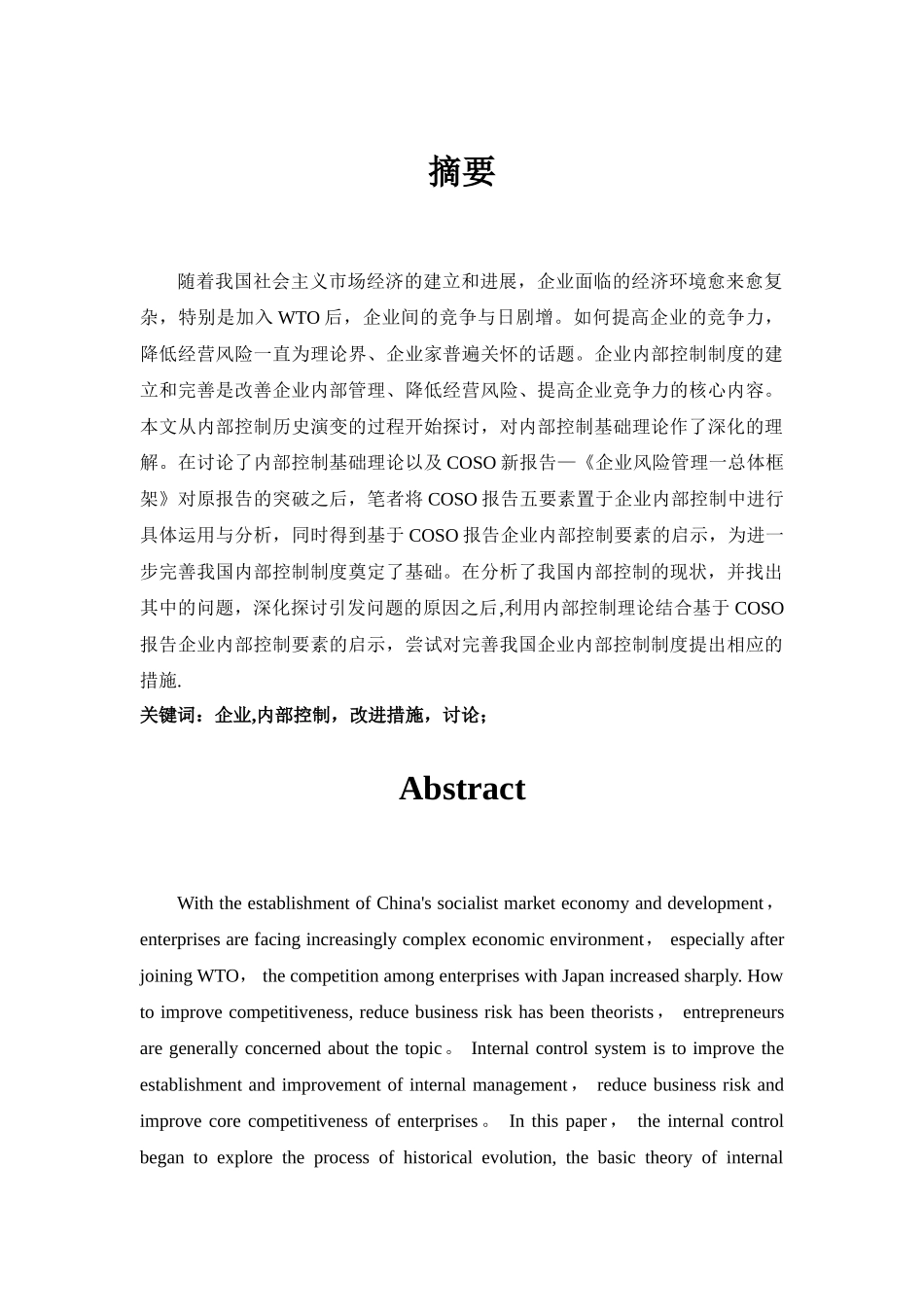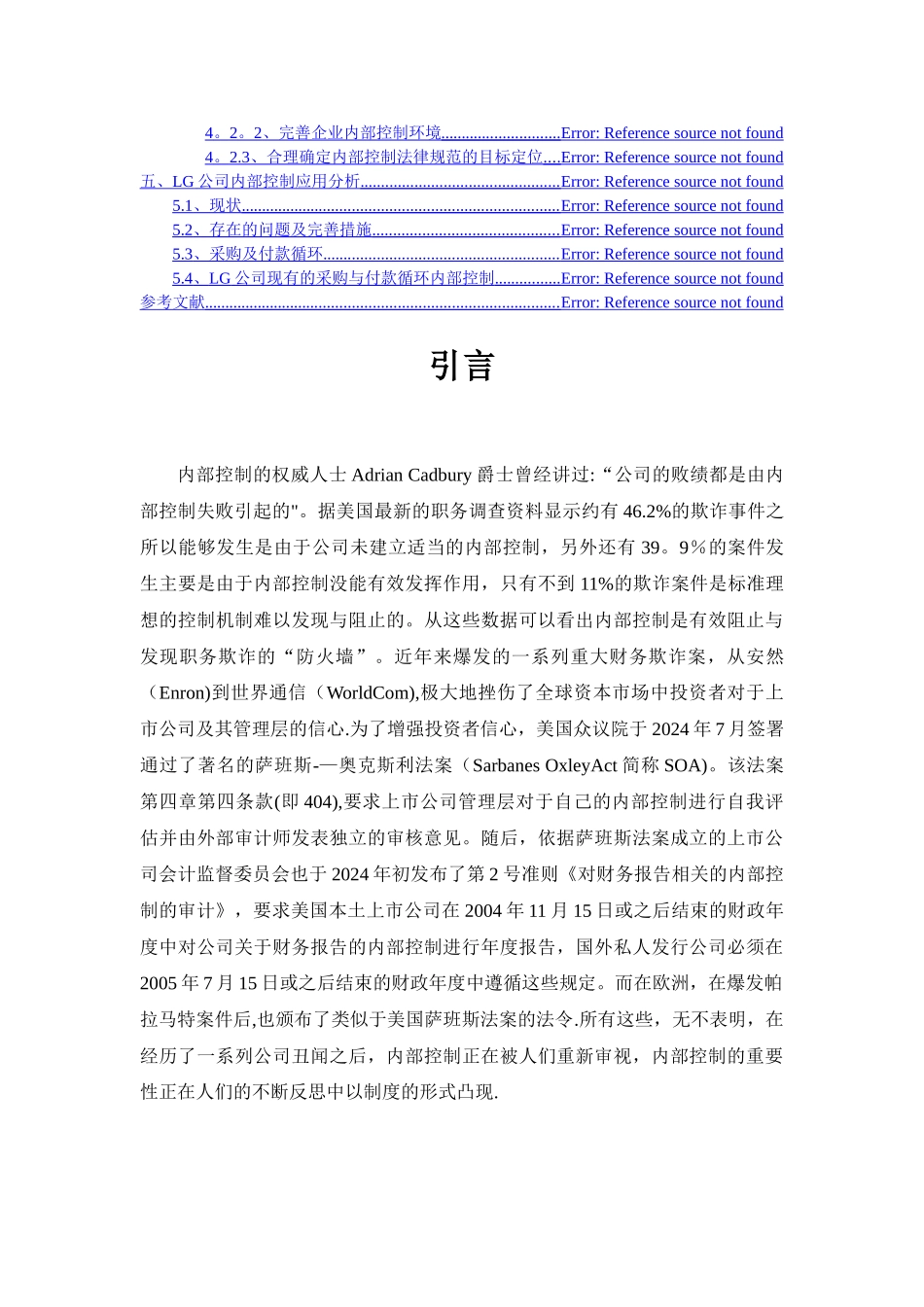摘要随着我国社会主义市场经济的建立和进展,企业面临的经济环境愈来愈复杂,特别是加入 WTO 后,企业间的竞争与日剧增。如何提高企业的竞争力,降低经营风险一直为理论界、企业家普遍关怀的话题。企业内部控制制度的建立和完善是改善企业内部管理、降低经营风险、提高企业竞争力的核心内容。本文从内部控制历史演变的过程开始探讨,对内部控制基础理论作了深化的理解。在讨论了内部控制基础理论以及 COSO 新报告—《企业风险管理一总体框架》对原报告的突破之后,笔者将 COSO 报告五要素置于企业内部控制中进行具体运用与分析,同时得到基于 COSO 报告企业内部控制要素的启示,为进一步完善我国内部控制制度奠定了基础。在分析了我国内部控制的现状,并找出其中的问题,深化探讨引发问题的原因之后,利用内部控制理论结合基于 COSO报告企业内部控制要素的启示,尝试对完善我国企业内部控制制度提出相应的措施.关键词:企业,内部控制,改进措施,讨论;AbstractWith the establishment of China's socialist market economy and development, enterprises are facing increasingly complex economic environment, especially after joining WTO, the competition among enterprises with Japan increased sharply. How to improve competitiveness, reduce business risk has been theorists, entrepreneurs are generally concerned about the topic。 Internal control system is to improve the establishment and improvement of internal management, reduce business risk and improve core competitiveness of enterprises 。 In this paper, the internal control began to explore the process of historical evolution, the basic theory of internal controls in depth understanding. After studying the basic theory and the COSO internal control new report — ”an overall enterprise risk management framework” a breakthrough in the original report, the author will report on five elements of COSO internal control were placed in the Application and analysis, based on the COSO report also been internal control elements of the Enlig...


